This Asian Composers League concert features NZTrio performing works from Philippines, UK, Aotearoa, Japan and Malaysia.
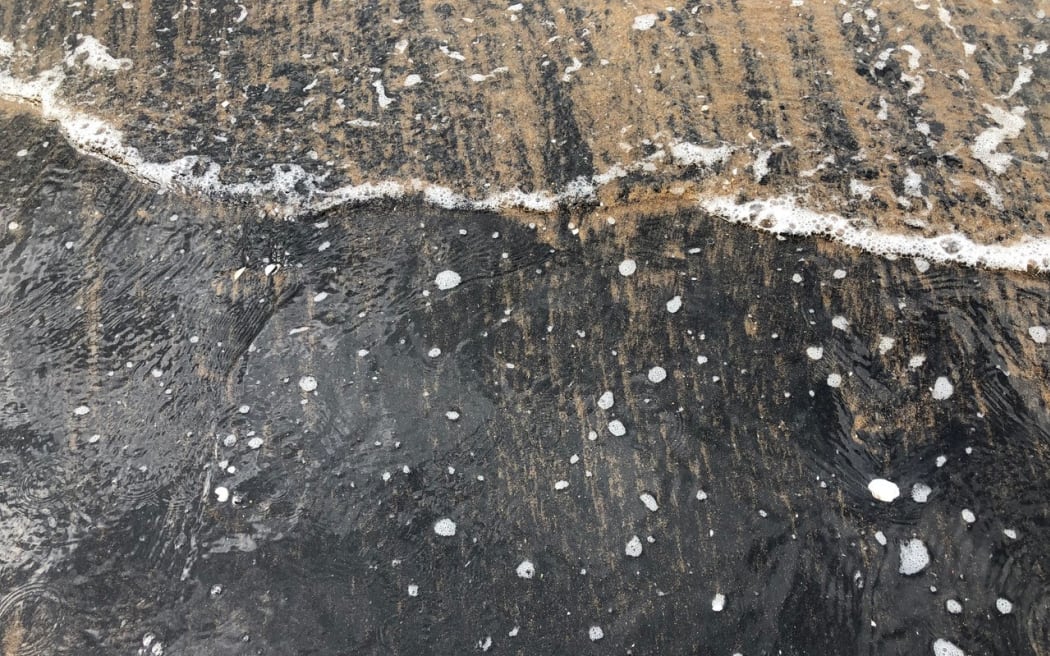
Black sand at low tide. Photo: Glenda Keam
The concert is called Te Ihutai, which literally means ‘the nose of the tide’ in te reo Māori and refers to the breathing in and out of tidal waters. It was recorded at The Piano, Christchurch in August 2022.
NZTrio is a long-time champion of new music, and is made up of Amalia Hall (violin), Ashley Brown (cello) and Somi Kim (piano). They perform works by composers from Philippines, UK, Aotearoa, Japan and Malaysia.
Michael Norris: Horizon Fields
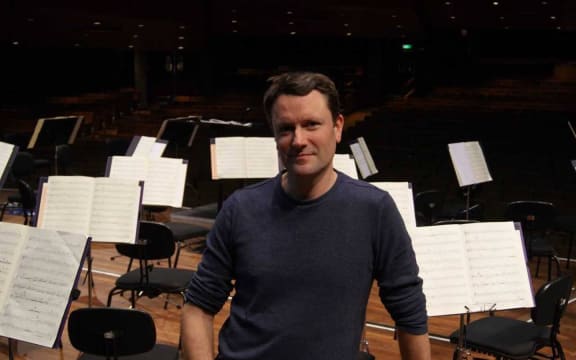
Michael Norris Photo: Supplied
Te Whanganui-a-Tara/Wellington composer Michael Norris composed Horizon Fields in 2022.
It takes its themes from the large-scale art installation ‘Horizon Field Hamburg’ by Antony Gormley. Comprising an enormous steel platform suspended 7m above the ground, its mirror-like black epoxy surface created striking reflections of both the hall and the city beyond. For visitors who walked across it, this provided the illusion of teetering on the surface of a deep, dark (perhaps frozen?) lake. Any sudden or co-ordinated movements would cause the entire structure to gently rock.
Michael Norris explains that Gormley’s themes of floating planes suspended in architectural space, mirror-form reflections and gentle oscillations have been freely interpreted to form the core sonic ideas and musical behaviours of his piano trio. The piano is the initiator of movement in this work, sending out small ‘ripples’ of colour that the strings sustain, echo, vibrate and pulse.
Horizon Fields was commissioned by NZTrio in 2022, and it’s dedicated to them.
Ryle Custodio: Elehiya Para sa mga Biktima ng Masaker sa Maguindanao (Elegy for the Victims of Maguindanao Massacre)
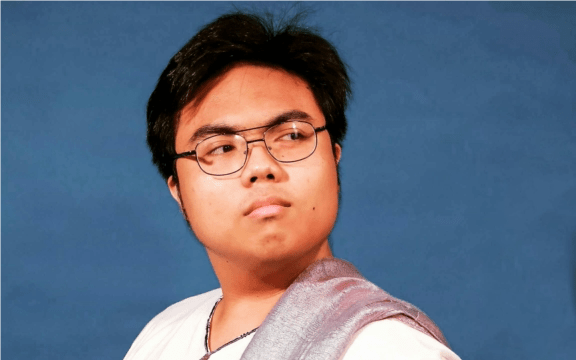
Ryle Custodio Photo: Supplied
In 2018 Custodio made history as the first Filipino composer to win the First Prize award at the Asian Composers League Young Composers Competition. ‘Elegy for the Victims of Maguindanao Massacre’ (2020) was commissoned as part of that prize.
In his programme note, Custodio eplains that on the morning of 23 November 2009, the Maguindanao Massacre took place in the province of Maguindanao, Philippines. The victims were mostly media workers and supporters of Philipino politician Esmael Mangudadatu, who were on their way to file a certificate for his candidacy in the upcoming elections. They were kidnapped and killed by political rivals of the Mangudadatu family. It’s reported that 58 people were killed, among them, 32 media workers and journalists, making the massacre the single deadliest event in the history of journalism.
Ryle Custodio says, “This piece serves as my elegy to my innocent countrymen whose lives have been taken away because of this political rivalry. It also tries to be a statement for press freedom, and against the flawed and slow judiciary system that continues to deny numerous victims of the justice they truly deserve.”
As well as being a composer, Custudio plays the Kulintang, a gong-chime instrument important to the musical culture of the Maguindanao people. He’s tried to capture Maguindanao in this piano trio work by using variations of the Binalig Pattern, a Kulintang rhythmic mode from that region.
Callum Mallett: Departure, at the going tide

Callum Mallett Photo: Supplied
Callum Mallett is a composer, multi-media artist and collaborator based in Te Whanganui-a-Tara/Wellington.
The work we’re going to hear was inspired by a Colin McCahon painting called ‘On Going Out with the Tide’. The painting depicts a passage about the afterlife by Maori elder, Matire Kereama, which Colin McCahon read in Kereama’s book The Tail of the Fish: Maori Memories of the Far North.
The passage that Kereama wrote says: “When I was a child no person died without first asking about the state of the tide...People always liked to die at low tide because the tide had to be completely out to reach Te Rerenga Wairua, ‘The Leaping Place of the Spirits’.”
Callum Mallett’s composition uses both this passage and McCahon’s painting as inspiration. It was composed for NZTrio’s ‘Turn a Phrase” competition.
Tabea Squire: Der Tanz
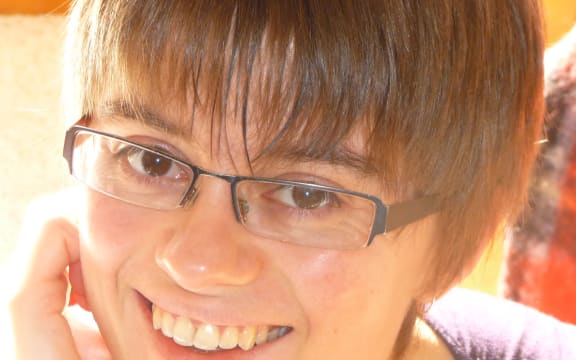
Tabea Squire Photo: Eustie Kamath
Te Whanganui-a-Tara/Wellington-based composer Tabea Squire is half German, and German poet Christian Morgenstern has been a favourite of her family for generations for his playful, metaphysical and slightly surreal poems.
“The way he 'plays' with the language really suits the family humour” Tabea explains:
For the work we’re about to hear Squire chose Morgenstern’s poem Der Tanz, The Dance, as inspiration because she has always enjoyed the poem’s whimsy and colourful animal characters. She says that a four quarter pig and an upbeat owl lent themselves especially well to musical interpretation.
The first two movements are named after these two characters, and are directly inspired by them.
Squire writes: “As the four-quarter pig – surprisingly – only has three legs, I made the first movement a play of threes and fours. The upbeat owl, according to the poem, 'swayed her head rhythmically'; while my version of her became jerky and almost grotesque, she's still undeniably rhythmic.”
Karlo Margetić: Lightbox
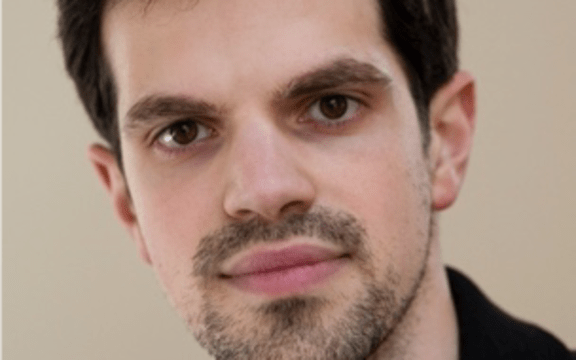
Karlo Margetic Photo: Supplied
Lightbox by Wellington composer Karlo Margetić won the SOUNZ Contemporary Award in 2013.
Karlo says: “When I think of a piano trio, I immediately think of a transparent interplay of lines. This has something to do with the fact that the instruments that make up the modern piano trio are not particularly homogeneous, unlike say, a string quartet. It’s as if somebody had strewn some line drawings of simple three-dimensional objects on a photographer's lightbox, all on top of one another, resulting in an unexpected and strangely beautiful assemblage.
Chatori Shimizu: Wagyu Pigs
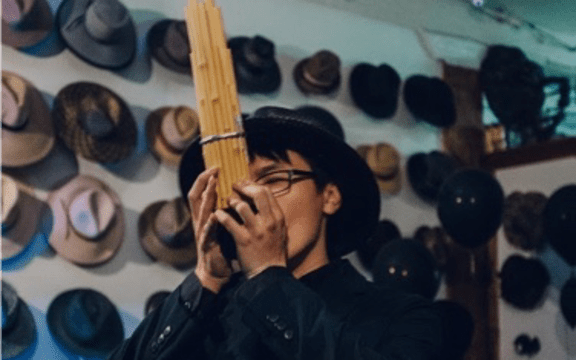
Chatori Shimizu Photo: Supplied
Japananese Hokkaido-based composer Chatori Shimizu's piece is called ‘Wagyu Pigs’.
Wagyu refers to any of several breeds of Japanese cattle producing sought after and expensive, tender, marbled beef. And this work explores the complex relationship between individualism and collectivism through the metaphor of ordinary animals living amongst the wagyu animals.
The composer says “The pigs want to become wagyus, but no matter how hard they try, they are not perceived as wagyus.”
For this work, the composer has borrowed a technique from Gagaku music - a type of Japanese classical music that was historically used in the imperial court. The technique he’s borrowed is called “Breath Rhythm”, where there’s no time signature, and performers must listen and “breathe together” with one another to create the natural flow of the music.
Joe Cutler: McNulty
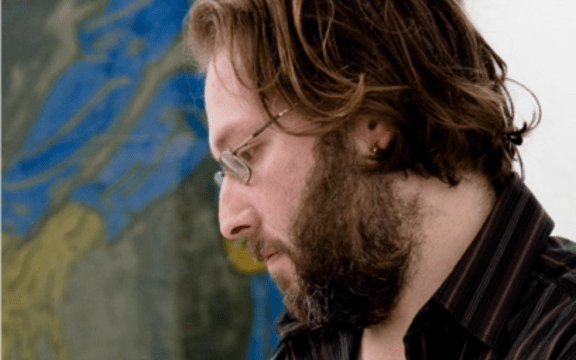
Joe Cutler Photo: Supplied
London-based composer Joe Cutler has been a distinctive figure on the contemporary music scene in England for over three decades, often exploring the spaces between genre. His music has been described in the Daily Telegraph as having ‘quirky dancing energy and humour mingled with mystery’.
His piece ‘McNulty’ poses the question: where dual Irish-American heritage is concerned, what material is pertinent and what is non-pertinent, when that material is second-generation?
Cutler says. “In McNulty, I attempt to place the intricate ornamentation of Irish traditional music outside its normal environment, allowing it to become fused with repetitive riffs and figurations, or placed alongside spectral-inspired harmonic-based textures. Through isolating one feature of traditional music, and placing it within an alternate context, ornamentation becomes the “thing” the piece is about, at odds with its normal ‘supporting’ role.”
Tazul Izan Tajuddin: Sebuah Pantun IV
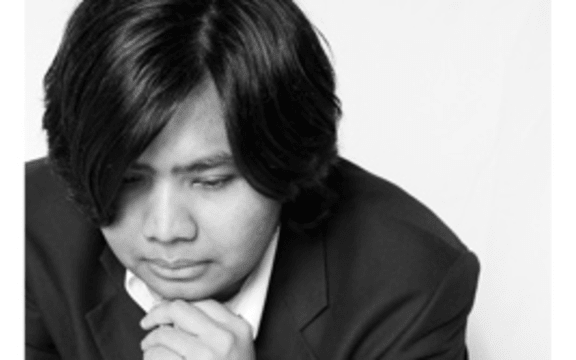
Tazul Izan Tajuddin Photo: Supplied
Malaysian composer Tazul Izan Tajuddin was born in Banting, grew up in Kuala Lumpur, and later lived in the USA and London. He was Fulbright Visiting Scholar at Harvard University in 2015-2016 and did his Master's in Music Composition at Carnegie Mellon University in the USA.
His work, ‘Sebuah Pantun IV’ was written using gamelan numbering, where each number corresponds to notes on the different instruments of the gamelan orchestra.
The ‘Pantun’ in the title is a Malay traditional poem, typically in two, four or six phrases. The composer calls this work a four-phrase pantun and it’s made up of four short sections that are played continuously.
Producer / Engineer: Darryl Stack
Technical assistant: Alex Harmer
Music Alive / Sound Lounge producer: Ryan Smith
Recorded at The Piano, Christchurch.
The 2022 Asian Composer’s League Festival took place in Ōtautahi/Christchurch.
This Festival is held in a different country in the Asia-Pacific region every one to two years, and features music by innovative Asia-Pacific composers, written predominantly in the last decade, performed by many of New Zealand’s top performers and ensembles. 2022 was Aotearoa’s turn to host the festival again, and it was held in conjunction with the ISCM World New Music Days Festival, the first time this international festival has been held here.
First broadcast in Sound Lounge on RNZ Concert.

